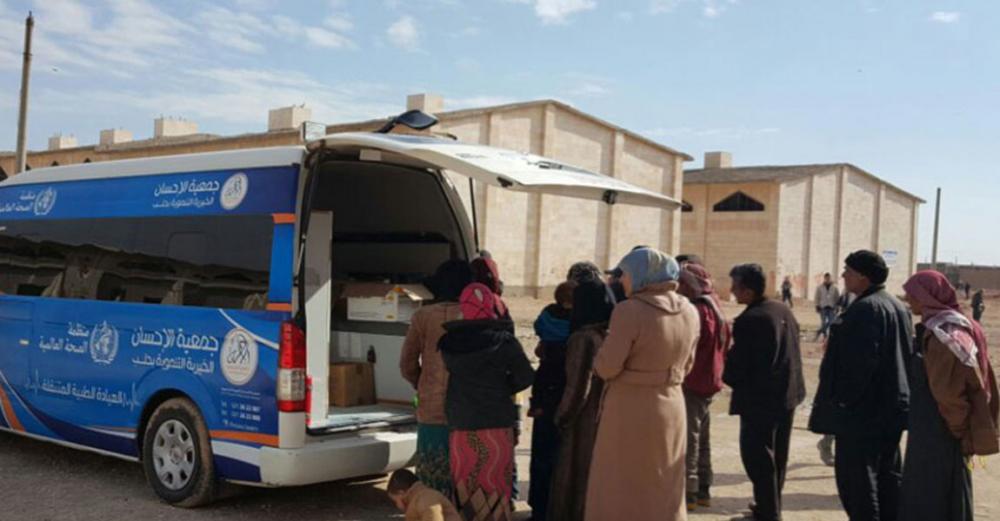Just Earth News | @justearthnews | 07 Apr 2020

New York : Parties to Syria’s brutal civil war, now in its tenth year, failed to abide by their obligations under international law to avoid attacks on hospitals and other civilian facilities that featured on the UN’s so-called deconfliction list, Secretary-General António Guterres said on Monday.
He made that point as he sent to the Security Council a summary of a 185-page report from the UN Board of Inquiry that he set up on 1 August last year, into a number of incidents in northwest Syria involving facilities on the deconfliction list and UN-supported facilities.
“The impact of the hostilities on civilian and humanitarian sites in northwest Syria is a clear reminder of the importance for all parties to the conflict to observe and ensure respect for international humanitarian law”, said Mr. Guterres in a letter to José Singer Weisinger of the Dominican Republic, the Council’s President for April. Places on the list are supposed to be exempted from military targeting, because they involve healthcare or other purely civilian activities, or were supported by the UN.
Distinguish between civilians and combatants
That includes the obligation at all times to distinguish between civilians and combatants and between civilian objects and military objectives and to direct attacks only against combatants and military objectives, he said.
“According to numerous reports, the parties have failed to do this”, he stated, emphasizing that any measures taken by Member States to combat terrorism must be consistent with their obligations under international humanitarian, human rights and refugee law.
The three-member Board of Inquiry, chaired by retired Lieutenant-General Chikabidia Obiakor of Nigeria, was prompted by several incidents reported in northwest Syria since 17 September 2018 when the Russian Federation and Turkey signed a memorandum on stabilizing the situation in the Idlib de-escalation area, home to the last pockets of rebel resistance.
Its report and recommendations - accompanied by more than 200 appendices and annexes – gives the Secretary-General a basis for considering what he might do to better protect and manage the Organization’s humanitarian resources in the field.
In preparing its report, the Board of Inquiry made no legal findings nor considered questions of legal liability or legal responsibility. But as the summary noted, it was unable to visit any of the sites it was tasked to look at, after the Government of Syria failed to respond to requests to do so.
But with information from UN entities, non-governmental organizations, witnesses and other sources, including satellite imagery from the Operational Satellite Applications Programme of the United Nations Institute for Training and Research (UNITAR), it sought to piece together incidents at six locations.
Five facilities likely attacked by Syrian Government and allies
In light of the information available to it, the Board of Inquiry said that it was “highly probable” that an attack on the Rakaya Primary Health Care Centre, in the village of Rakaya Sijneh in Idlib governorate, on 3 May 2019 was carried out by Syrian Government forces.
It added that it was “plausible” that damage to a similar health care facility in Kafr Nabutha, in Hama governorate, on 7 May 2019, was attributable to the Government and its allies.
Turning to an attack on the Nayrab Palestinian Refugee Camp near Aleppo airport on 14 May 2019, in which 11 people were killed and 29 injured, the Board of Inquiry said that it was “probable” that the strike was carried out either by armed opposition groups or by Hayat Tahrir al-Sham, an extremist organization designated a terrorist group by the Security Council.
Regarding damage done to the Kafr Nobol Surgical Hospital in Kafr Nobol, in Idlib governorate, on 4 July last year, it said that it was “highly probable” that the strikes had been carried out by the Government and/or its allies. It added, however, that it lacked sufficient evident to make a conclusive finding.
The Board of Inquiry went on to state that it was “highly probable” that an attack on a child protection centre in Ariha, Idlib governorate, on 28 July 2019 was conducted by the Government and/or its allies, adding once again however that there was not enough evidence before it to reach a firm conclusion.
The Board of Inquiry did not look into a seventh incident at As-Suqylabiyah National Hospital in As-Suqylabiyah, Hama governorate of Hama, on 26 May 2019 as it was not on the United Nations deconfliction list nor was it supported by the Organization.
Photo caption and credit:
WHO Syria
One of six mobile clinics provided by WHO to deliver health services to people fleeing violence in Aleppo, Syria. Photo: WHO Syria